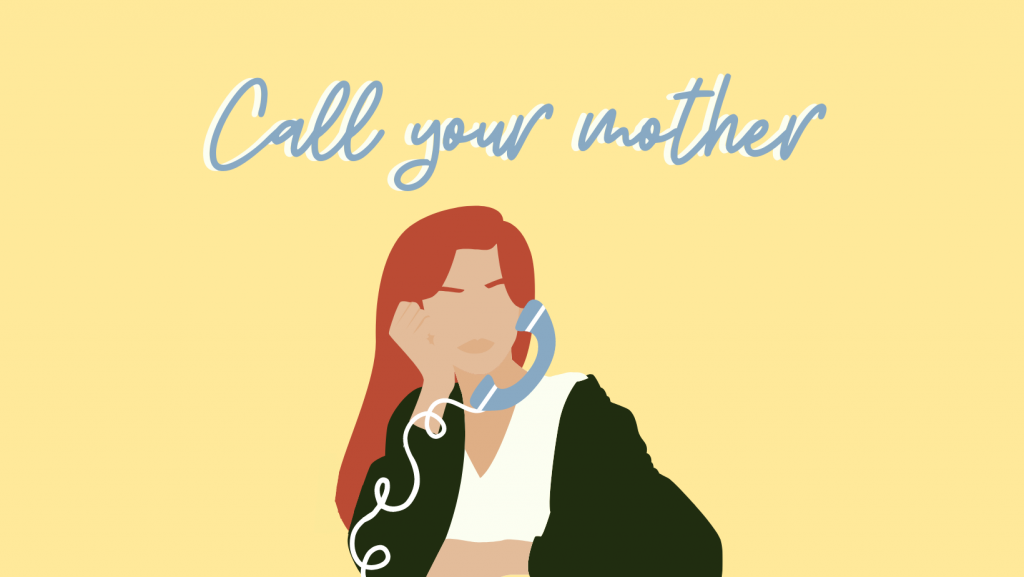
I had a meeting with one of my favorite professors a few weeks ago. We started the meeting with the usual pleasantries and questions about how things are going. I told her they were going surprisingly well. I was ahead of schedule on multiple projects, had just gotten a good grade on a paper and was balancing being a student-athlete with the workload of senior-level courses.
About ten minutes later I was crying on our Zoom call. She mentioned my plans to study at the University of Oxford next year – something I was supposed to do this school year – and I expressed my nervousness about the pandemic changing my plans again. Suddenly, I went from happily discussing how well I was managing this year to watching tears stream down my face on my Zoom camera. Watching yourself cry in real-time is one feature of Zoom I would have preferred to never find out existed.
I thought that I was fine and then I wasn’t. I kept myself so busy this year that I managed to ignore that this pandemic doesn’t have an end date. In fact, I blocked most things about the pandemic out of my mind. I think we all have – it’s one of the only ways to cope.
“This clearly has been bothering you,” my professor said in our meeting. It was clear to her that this year has caused me some anxiety, even though it hadn’t been clear to me.
I can remember telling my family how surprisingly normal school was when the year started. I’ve been living with my friends, spending days studying at the PLC and attending my classes. I’ve been sleeping the appropriate amount and eating the appropriate amount and getting good grades. My immediate family is healthy and fully vaccinated. By all indications, I am fine.
I’ve been so fine that when I hear people talking about how professors should give students more grace this year, I’ve rolled my eyes a little. Sure, we’re in a pandemic, but haven’t we all figured this out by now? Shouldn’t we toughen up and get over it? Isn’t the stress we’re feeling just normal school stress?
The thing is, it’s not normal to cry on a Zoom call over whether or not I will eventually get to study abroad, something that is a foundational part of the rigorous program I’ve spent the past three years working so hard to complete. It’s not normal to stress about if I’ll get quarantined for my final few weeks at Jewell. It’s not normal to worry about how the only time I could schedule my second vaccine is twenty-four hours before I take the biggest test of my college career and debate whether or not I’ll be too sick.
I recently had a panic attack, another thing that is not normal for me. I had just sent an email to a group of professors regarding a project for The Hilltop Monitor. I started shaking and my vision went blurry. I was spiraling, and for the next twenty-four hours I was physically sick with anxiety. My panic attack was about more than just sending an email.
This year I felt painfully vulnerable every time I turned in an assignment or emailed a professor. My classes all require me to constantly write and present my ideas to then be critiqued, which I usually enjoy. I spent more time worrying that my words were embarrassing or unintelligent this year. I think education is something incredibly personal, and it requires a level of vulnerability. It’s hard to be vulnerable with people who you only interact with through a computer screen. I struggle with how impersonal and isolating my education has become.
All of my classes are virtual. Sometimes, I feel like my professors are not even real people, just email addresses and accounts on Zoom. I wonder if they feel the same way about me. I used to stop by their offices or hang around class a little longer if I had a question or just wanted to talk. Now, I debate if my question is worth typing up an email and scheduling a Zoom meeting. Most of the time, it isn’t.
The other day, I realized that it had been over a year since I had seen any of my English professors. Throughout my college career, I have written hundreds of pages of my thoughts for these professors to read. They’ve spent hours writing feedback on these pages. They’ve had a profound impact on me, and I’ve grown so much as a person and a student because of them. Last March was probably the last time in my life I will ever see any of them.
Our professors are doing the best they can to make sure we have a positive college experience while being safe. For me, it has been an overwhelmingly positive experience. I am learning and making memories with friends. I am doing just as well in my classes as I always have. I know my professors are always there for me – it might just not be in person. It’s not their fault that students feel disconnected, but that doesn’t mean the disconnection isn’t difficult. College during COVID-19 is difficult for us all.
If you’re feeling unmotivated or unsupported or just sad, it’s okay. It’s normal. Being a college student is harder this year, even if you get so absorbed with survival that you forget. Just because you appear to be doing well doesn’t mean things aren’t tough. Give yourself grace.
“This has clearly been bothering you,” my professor told me as we talked to each other through a computer screen.
Whether you realize it or not, this pandemic has probably been bothering you, too. I felt a lot better once I was able to identify the emotional toll of virtual learning. Processing the impact this year had on us won’t be easy, but it’s going to be an important part of moving forward.
